How are damascus knives made?
The Damascus kitchen knives start from a raw steel, it needs to
go through 16 processes, 168 hours of delicately crafted. After this, it
becomes a high-quality, nice looking knife in your hand.
The Damascus kitchen knives is " the noble in the knives" which is popular on INS. It combines beauty and quality, and is the symbol of elegance and wisdom. Then you will think, how exactly is the Damascus kitchen knives made? What kind of workmanship makes people appraised it so much?ok, this article will uncover the mysterious veil.
The production of Damascus knives is a complex and time-consuming process. Modern Damascus kitchen knives mostly use folding and forging techniques. From the design, material selection, forging, forming, grinding and polishing to be a complete knife, this whole set of procedures is a great test of the skill of the knifemaker. In a word, the Damascus kitchen knives start from a raw steel, it needs to go through 16 processes,168 hours of delicately crafted. After this, it becomes a high-quality, nice looking knife in your hand.
Let’s see some primary process about how it be made. We will illustrate the birth of a Damascus knife with picture.
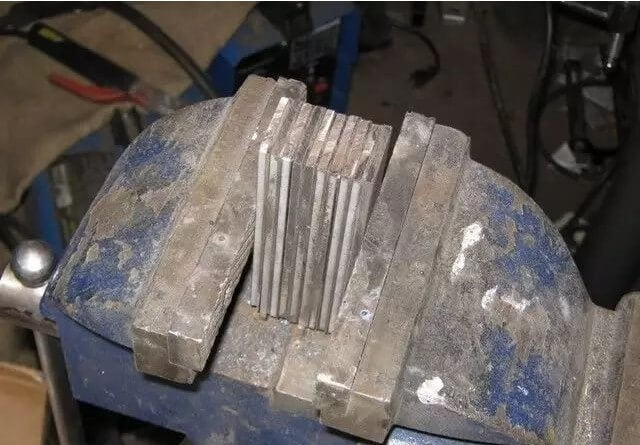
At the same time, we must pay close attention to the color of the raw steel, this step requires high ability and experience of the craftsman. Burning to be too black or too white will not work, only burning to be red with yellow is just right. At this time, the raw steel should be quickly extracted.

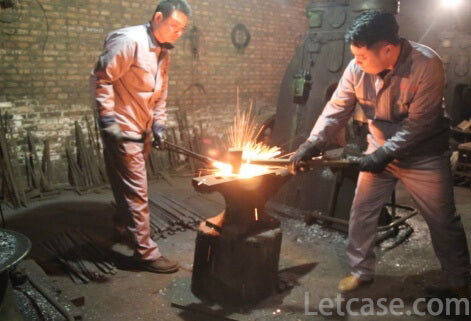
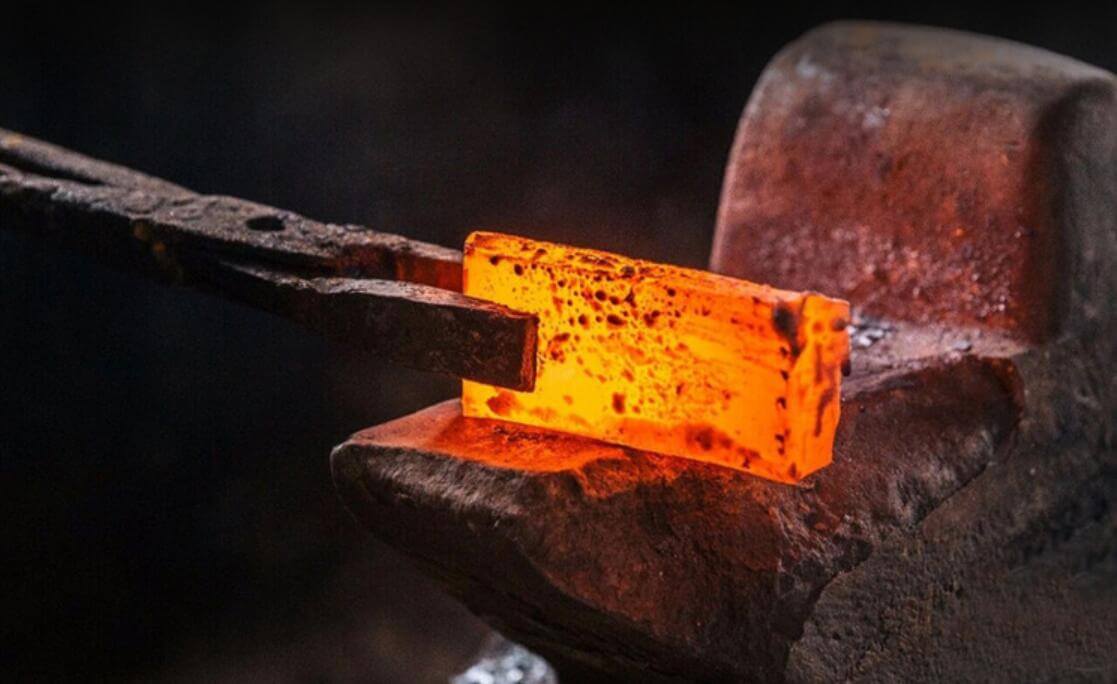
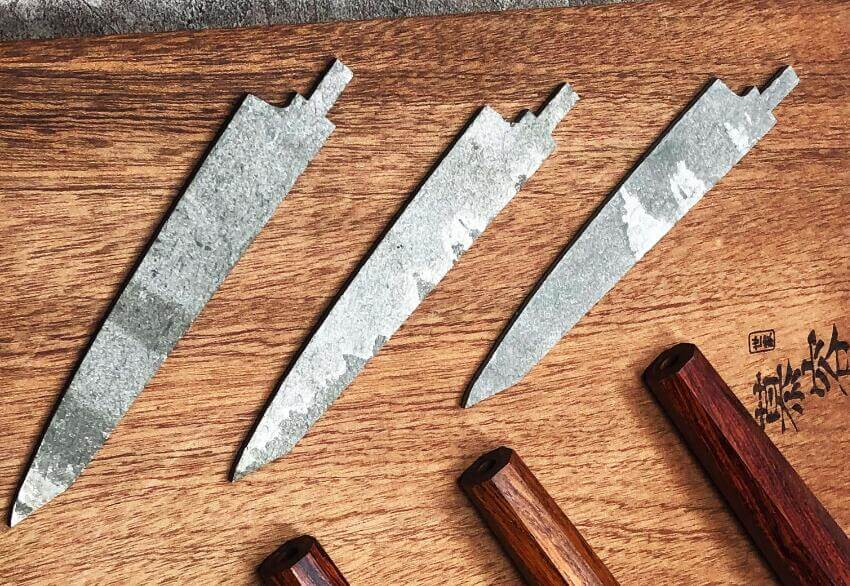
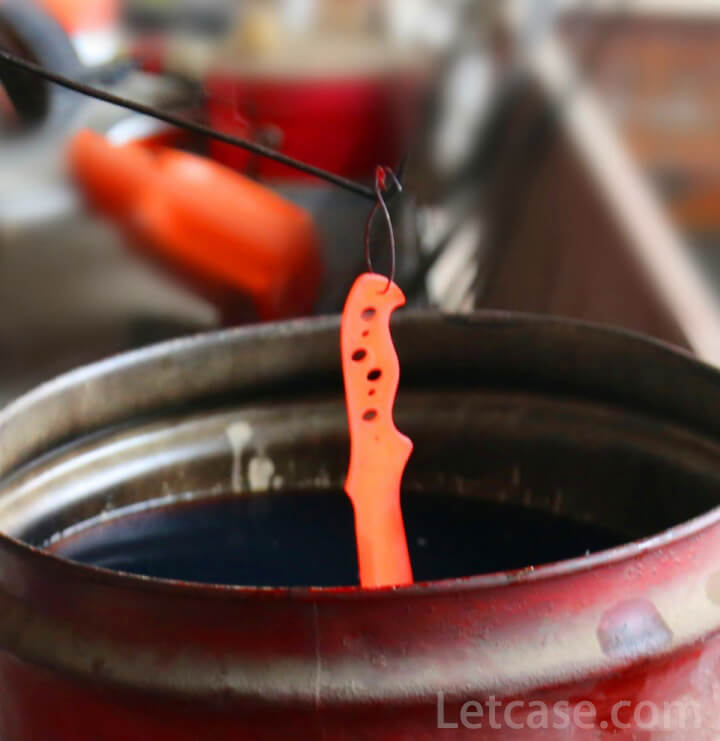
In this process, the materials are different, the quenching temperature and quenching medium are also different. So the heating temperature should be determined according to the specific situation. If the temperature is too high, the knife is easy to crack. If the temperature is too low, the performance of the knife will be lowered too.
Notice: pickling is not acid etching. Pickling is the normal process of making Damascus knives, but acid etching is to burn patterns with strong acid, which is a method of falsification.
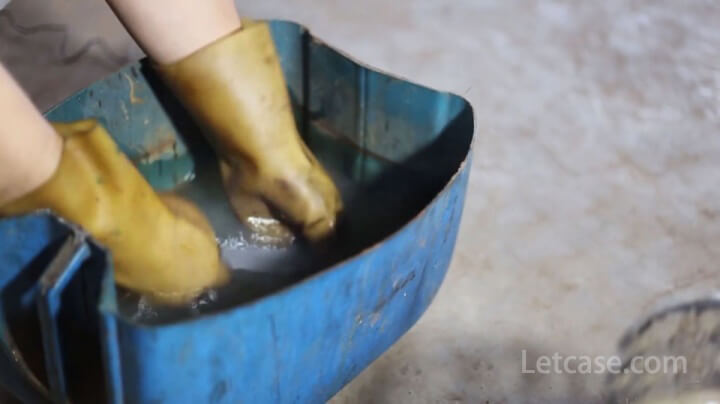
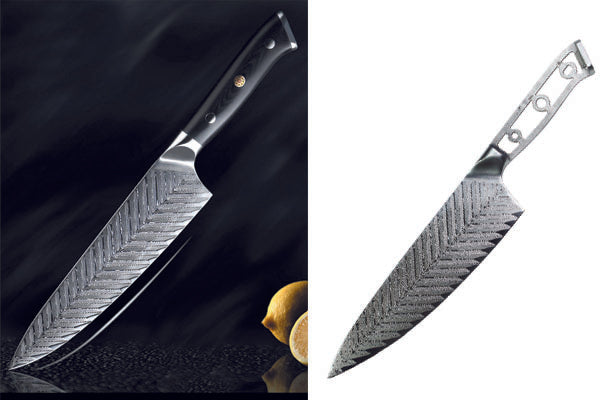
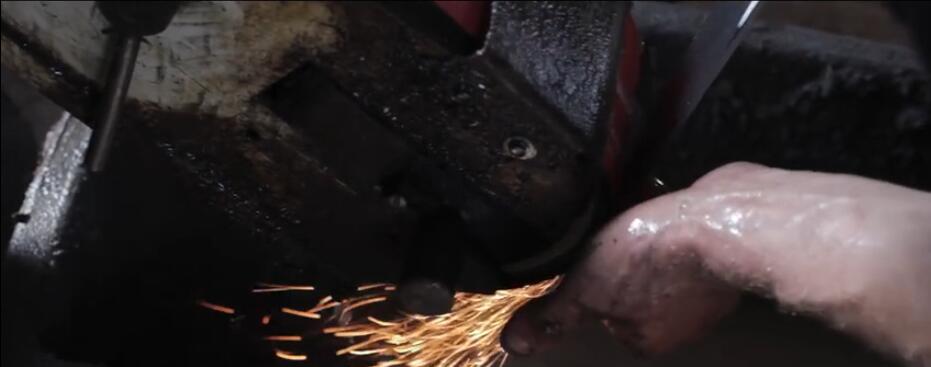
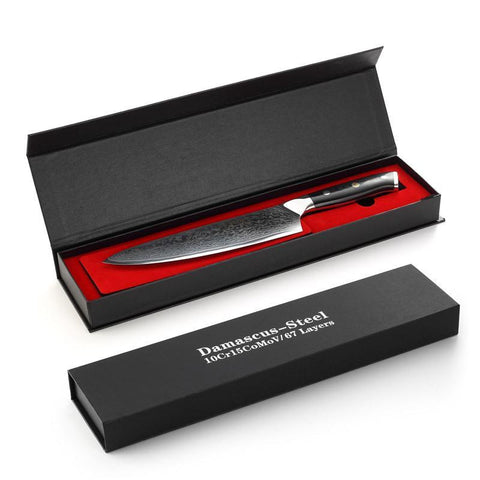
The Damascus kitchen knives is " the noble in the knives" which is popular on INS. It combines beauty and quality, and is the symbol of elegance and wisdom. Then you will think, how exactly is the Damascus kitchen knives made? What kind of workmanship makes people appraised it so much?ok, this article will uncover the mysterious veil.
The production of Damascus knives is a complex and time-consuming process. Modern Damascus kitchen knives mostly use folding and forging techniques. From the design, material selection, forging, forming, grinding and polishing to be a complete knife, this whole set of procedures is a great test of the skill of the knifemaker. In a word, the Damascus kitchen knives start from a raw steel, it needs to go through 16 processes,168 hours of delicately crafted. After this, it becomes a high-quality, nice looking knife in your hand.
Let’s see some primary process about how it be made. We will illustrate the birth of a Damascus knife with picture.
1. Selecting Raw Materials
Choose several kinds of high-quality steel with different carbon content, combine soft steel and hard steel, such a combination can ensure the knife won't be easy to break, but also can ensure the sharpness of kitchen knife.
2. Sinter Forging
Heat control essential with the success or failure of each knife. Because the materials for making Damascus kitchen knives are different, so, it is necessary to control appropriate fire according to the different properties of steel.At the same time, we must pay close attention to the color of the raw steel, this step requires high ability and experience of the craftsman. Burning to be too black or too white will not work, only burning to be red with yellow is just right. At this time, the raw steel should be quickly extracted.

3. Forged
The Damascus kitchen knife should be repeated burned and forged, the performance and design of knife determine the angle we forge, the strength we use, and the number of times for folding. In the repeated forging and twisting process, it's better to remove the oxide layer on the surface in time which can ensure a nice-looking appearance of knife. The pattern of the Damascus knife is naturally formed in this process.

4. Shape Mould
After many times of forged procecss, the raw steel form the coutour of the kitchen knife. and then it is further carefully grinded by a grinding wheel, finally, The original appearance of a knife has appeared in front of us.
5. Quenching
Heat the knife to a certain temperature and immediately put it in oil or muddy water to chilling. The main function of this process is to increase the hardness of the knife, this is why the Damascus kitchen knife maintains its sharpness.
In this process, the materials are different, the quenching temperature and quenching medium are also different. So the heating temperature should be determined according to the specific situation. If the temperature is too high, the knife is easy to crack. If the temperature is too low, the performance of the knife will be lowered too.
6. Pickling
After we extract the knife from the chilling tool,we need to forge it a few minutes and then wipe it with a weak acid or soak it in.Notice: pickling is not acid etching. Pickling is the normal process of making Damascus knives, but acid etching is to burn patterns with strong acid, which is a method of falsification.

7. Make the knife handle
The handle is an important part of a knife, the materials of the knife handle should be coordinated with the body of the knife to match the design of the entire knife. After selecting the material of the tool handle, cut the material to the required size and polish it into the designed shape. In order to feel comfortable, it should be polished repeatedly.
8. Polish
After repeated grinding and polishing, a Damascus knife can change from rough to delicate and shiny.
9. Packaging
Finally, make a suitable package for the knife. The gorgeous magic of steel, an exquisite Damascus kitchen knife was made like this.
After reading this article ,I hope you have a better understanding about How Damascus kitchen knife are made.
The best kitchenware will not constrain your inspiration and ideas (cooking), such as this set of knives.
I hope that, when you have this hand forged kitchen knife set can enjoy the fun of cooking and bring pleasure to the people you care.
Article source: https://www.letcase.com/blogs/news/how-are-damascus-knives-made

Comments
Post a Comment